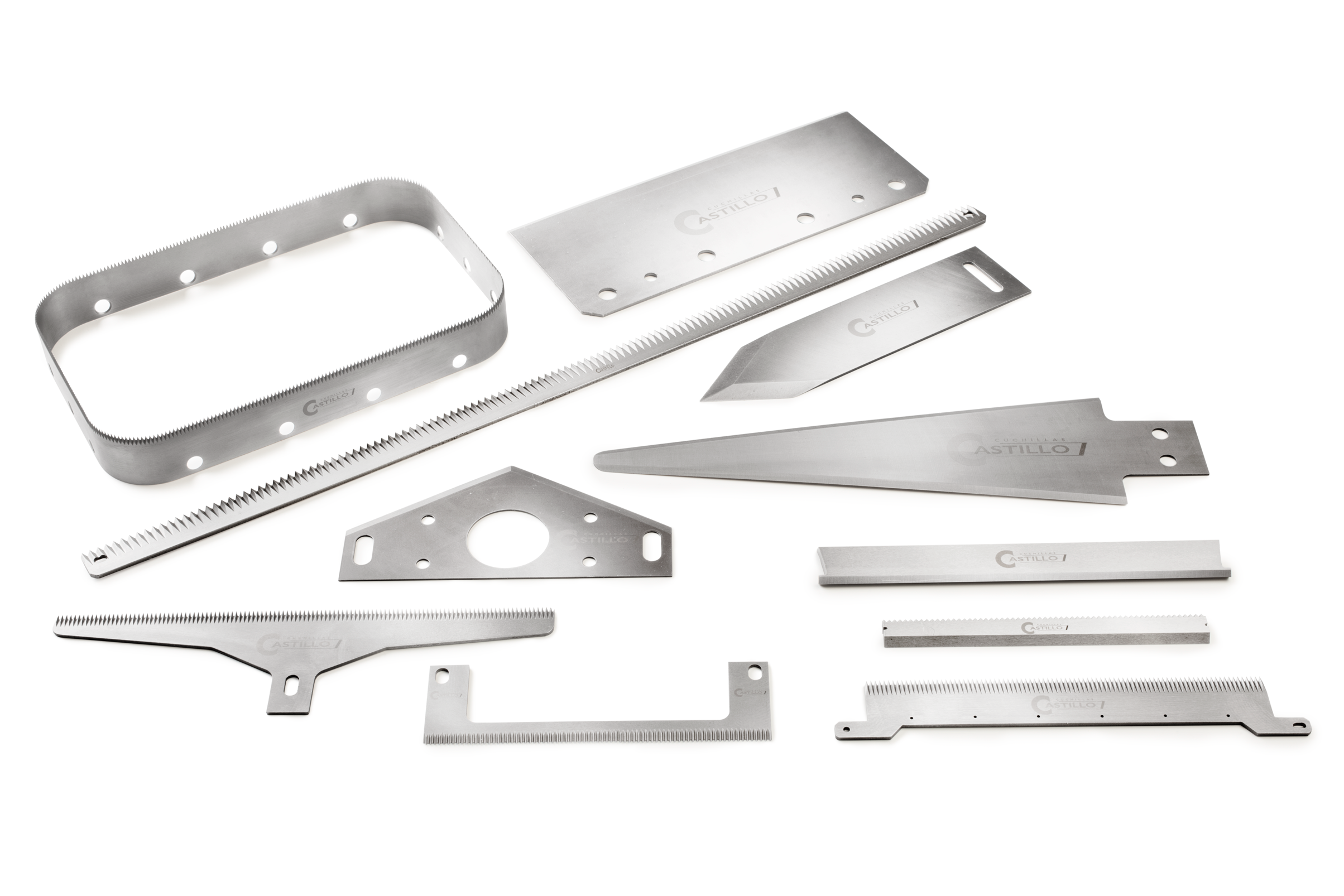In the food industry, efficiency and safety in production processes are essential. Industrial blades play a crucial role in the preparation, cutting, and processing of food, and therefore must adhere to strict quality and safety standards. A failure in the material or design of these blades can compromise not only the final product’s quality but also food safety, potentially endangering consumer health.
Additionally, with increased regulatory scrutiny and consumer demand for safer, healthier products, companies must ensure that their processing tools not only meet but exceed legal and quality requirements. Below, we analyze the fundamental aspects that these blades must meet to be suitable for food processing.
1. Safe and Approved Materials for Food Contact
One of the most important requirements for industrial blades in the food industry is that they must be made from materials approved for food contact. These materials, such as food-grade stainless steel, must be corrosion-resistant, easy to clean, and should not transfer toxic substances or contaminants to the food. Stainless steel 304 and 316 are the most common due to their resistance to oxidation and durability.
Additionally, the blades must comply with international and European regulations, such as those established by the European Food Safety Authority (EFSA). In Spain, it is also relevant to consider the standards and certifications of AENOR.
2. Hygienic Design
The design of industrial blades is also a critical factor. They must be designed to minimize points of residue accumulation and be easy to clean and disinfect. The concept of “hygienic design” is key in the food industry, where preventing cross-contamination and bacterial proliferation is crucial. Smooth surfaces and rounded edges are common features of blades that meet these requirements.
Additionally, it is important that the blades are detachable or accessible for thorough cleaning, ensuring that no food residues remain that could cause contamination.
3. Durability and Resistance
Blades used in food processing must be extremely durable and resistant to wear. This is especially important in industries where blades are in continuous use or where hard or fibrous foods are processed. A high-quality blade will maintain its sharpness longer, reducing the need for frequent sharpening and minimizing production downtime.
4. Precision and Uniformity in Cutting
In food processing, precision in cutting is fundamental. Blades must be capable of making precise and uniform cuts, ensuring that food products have the desired shape and size. This not only improves the final product’s presentation but also can influence cooking and packaging.
The sharpness quality and the maintenance of blade alignment are essential to ensure consistency in cutting.

5. Compliance with International Standards
Industrial blades must comply with several international standards that ensure their safety and effectiveness. Relevant standards include:
- ISO 22000: Food safety management systems, which set requirements to ensure food supply chain safety.
- ISO 8442: Requirements for the safety and quality of utensils and tools in contact with food, including blades.
- NSF/ANSI 51: Certification establishing material requirements for food processing equipment.
These standards ensure that blades are not only safe and effective but also manufactured under processes that guarantee their quality and traceability.
6. Maintenance and Sharpening
Finally, proper maintenance of blades is crucial to prolong their service life and ensure their effectiveness. Companies should establish regular maintenance programs that include the inspection, cleaning, and sharpening of blades. Moreover, it is advisable to have a specialized company perform this maintenance, ensuring compliance with standards.
The Importance of Blades in the Food Industry
Industrial blades in the food industry must meet rigorous requirements to ensure the quality and safety of food products. From the selection of suitable materials to hygienic design, durability, cutting precision, and compliance with international standards, every aspect is crucial for safe and efficient food processing. Maintaining high standards in blade selection and maintenance not only protects consumer health but also optimizes production processes.
Cuchillas Castillo, a company specialized in high-quality blade manufacturing, not only provides tools that meet these strict standards but also offers professional sharpening services, ensuring that blades maintain optimal performance for longer, thus contributing to efficiency and safety in food production.

